
Casio Sessions winners Stefan Mahendra and May Payne
The winners of the inaugural Casio Sessions competition discuss their successful entries and the secret to writing songs on piano
Back in September, sixteen finalists battled it out to be the winner of the inaugural Casio Sessions competition. Held at London’s Ninety One Living Room jazz bar, the entrants showcased original piano compositions to judges Neil Evans and Dan Henry of Casio Music UK and Mohamed A. Sawyer and Emmanuel Tchombe of Loop Music. The standard on the night was so high that the panel decided to crown a pair of victors, May Payne and Stefan Mahendra – each of them taking home a Casio PX-S7000 digital piano and £500 in cash.
Hailing from Dorset, Payne wowed the judges with her deeply personal song I Hate It When You Touch Me. On his winning song Orbit, South East London-based Mahendra drew from influences such as Marvin Gaye and John Legend and impressed the judges with his technical prowess. We recently caught up with the pair to learn a bit more about their winning entries and to get some tips on writing songs on the piano…
There are so many beautiful melodies that work over very simple chords
Congratulations, how did it feel when you were announced as the winner?
Stefan Mahendra: “When my name was announced I was genuinely shocked, because there was so much amazing talent that was showcased that night. Of course, it felt amazing to win, alongside the talented May Payne, and I felt very proud of myself in that moment.”
May Payne: “Thank you so much! Honestly I was so surprised, I wasn’t expecting it at all. I was so happy but really in shock! As soon as I saw the other artists play I was happy to have been included but completely convinced that I wouldn’t win.”
Please tell us a little bit about your winning entry?
SM: “Orbit was a song collaboration with production duo Fika, who I released some songs with in 2022. There were a few different versions knocking about, but I felt that the song could really be something special as a piano ballad, so I reworked it completely and the result is what is available online.”
MP: “My song is called I Hate It When You Touch Me, and I wrote it when I was going through a very confusing and intense period of my life. I had recently been assaulted by someone that I knew personally. This left me reflecting on the various ways that I had experienced intimacy throughout my life, and trying to unpack the way that situations which were on the surface completely consensual had left me feeling violated and damaged.
“A realisation I had was that in a world where women grow up surrounded by the message that our status as sexual objects is our only source of value and men are watching violent fetishistic pornography from such young ages, of course heterosexual interactions feel disingenuous and imbalanced. I had done so many things without taking a second to truly connect with what it was that I desired in that moment, and that more often than not, I was merely looking for affection, comfort, and validation.
“The song is really just an extended act of self-therapy. All of this was much too painful and shameful to speak aloud to anyone, and writing/singing it was the only way I could let my subconscious flow freely. I never thought it would be for public consumption, let alone released on streaming platforms and winning awards, but here we are!”
Who are some of your key songwriting influences?
SM: “When it comes to songwriting, I tend to gravitate towards idols of mine like Marvin Gaye, Donny Hathaway, D’Angelo and Stevie Wonder. They all write songs that have a beautiful mix of interesting harmony and lush vocals.”
MP: “I grew up listening to Bob Dylan and Van Morrison, so those two are huge to me. I love Joni Mitchell and Laura Marling, but my favourite songwriter at the moment is Adrianne Lenker [Big Thief]. The way that she uses simple words in beautiful and uncommon combinations to create really specific emotions and atmospheres is so magical. I also had a huge emo phase in my adolescence, and I am lately realising how much of that dramatised and highly emotive attitude towards music has influenced me subconsciously.”
How important is the piano to you when it comes to songwriting?
SM: “Well, piano was the first instrument that I learned, so without it I wouldn’t have half the songs I currently have. It’s the starting point for probably 85 percent of my original compositions.”
MP: “I’ve been playing the piano almost as long as I’ve been singing. I was trained classically from a young age, and would get so much fun as a child out of going on guitartabs.com and figuring out how to play the chords to my favourite songs. Almost all of my songs come from me just sitting at the piano and letting it flow out of me, as silly as that sounds. It’s a natural process, my fingers always seem to know where to bring me.”
Could you share with our readers one tip for writing songs on the piano?
SM:” You don’t need loads of fancy chord knowledge to write songs on the piano. Some songs are very simple and it’s all about feeling. There are so many beautiful melodies that work over very simple chords, it’s just about finding what resonates with you and the song you are writing.”
MP: “If you ever find yourself stuck and creatively blocked, never ever be afraid to keep it simple. I think something about the layout of the piano, the fact that you can see all of the notes right in front of you at all times (in a way that is a lot more structured and organised than the guitar – in my opinion) can be overwhelming and make us over-intellectualise our decisions, but genuinely some of my favourite songs have been written by repeating a drone in my right hand and instinctually moving between different notes with my left.”
What are you most looking forward to about your prizes?
SM: “I cannot wait to use the brand new piano on gigs, and also to write with. It’s going to be the perfect addition to my studio and I’m looking forward to exploring all the different sounds and features.”
MP: “I’m super excited to have received my piano! Its so gorgeous, and I’m looking forward to get to know it better and find my favourite little tricks and sounds. Its also amazing that it has a battery life of four hours, and I really hope I get to make use of that soon, by taking it out to play in the forest or something.”
And what’s next for you and your music?
SM: “I released my debut EP a few months ago, so right now I am preparing the next project for release for early next year. There’ll be a show in spring time that you should definitely keep an eye out for.”
MP: “I just released my first EP, so its really on to the next one now! I have a few little projects I’m working on in the meantime, but its mostly just workshopping my newer songs with my band before we start to get in the studio and record them for real. I’m so excited for my next release, these new songs just feel so fresh and exciting. I cant wait to get them out.”



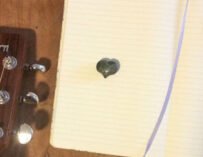


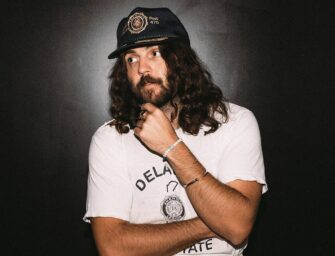
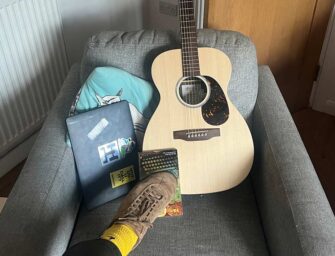
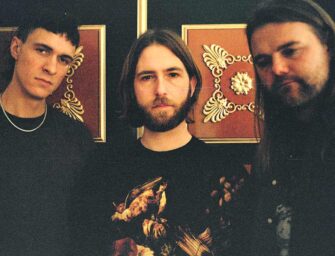
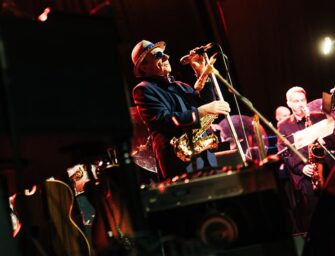

























Related Articles